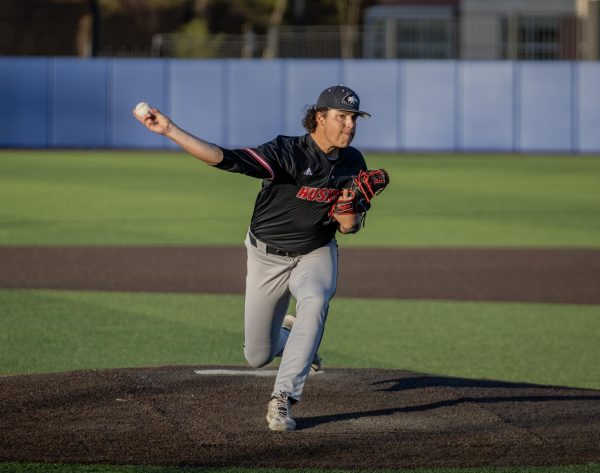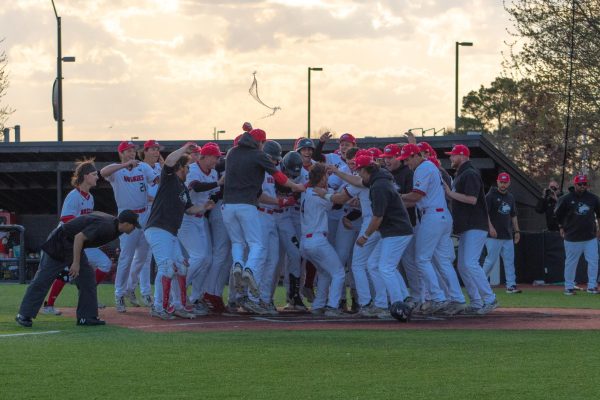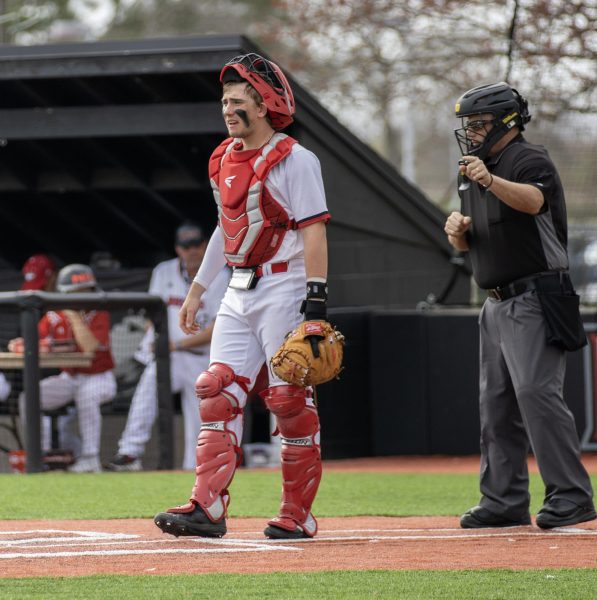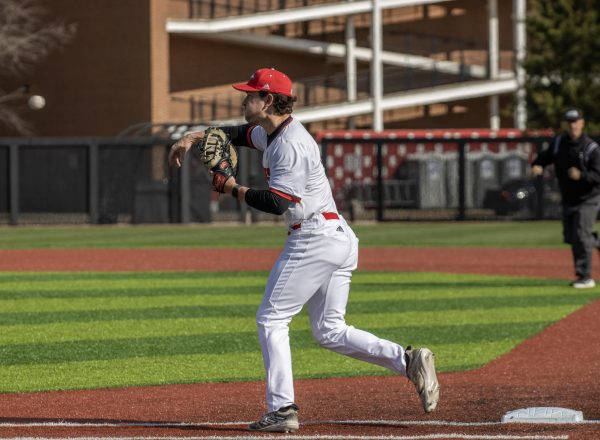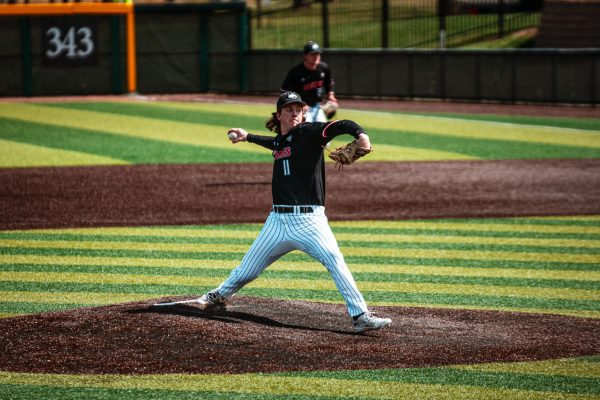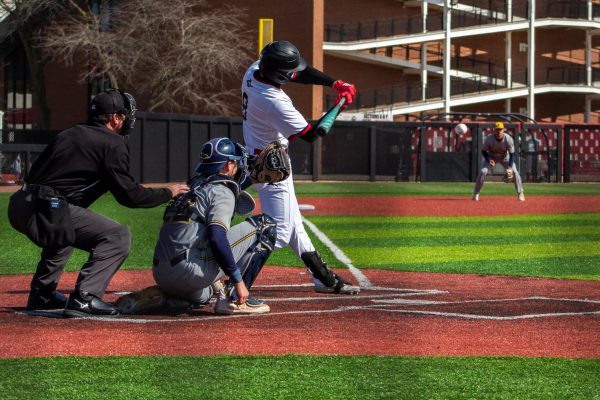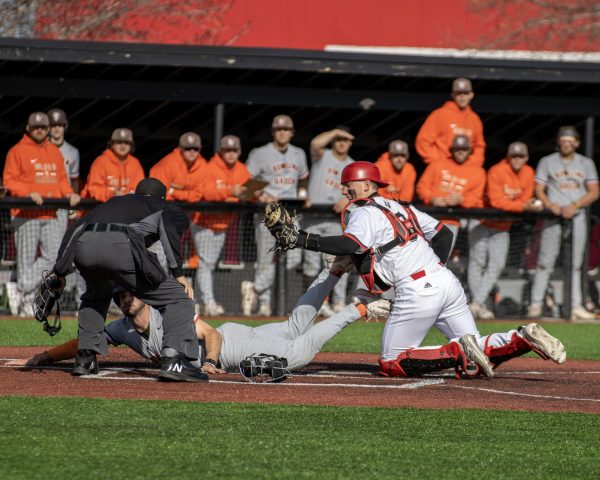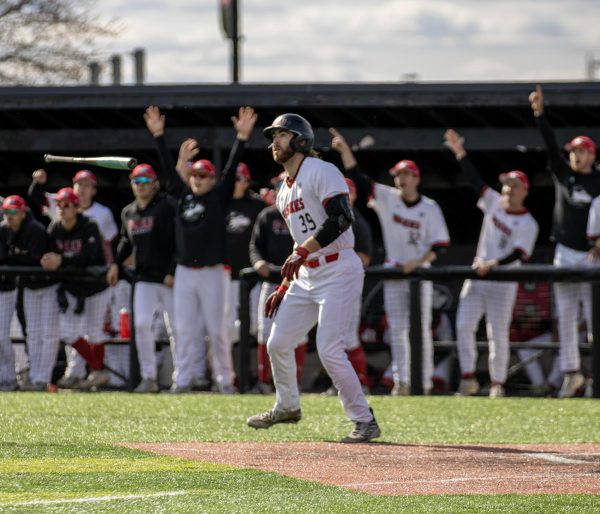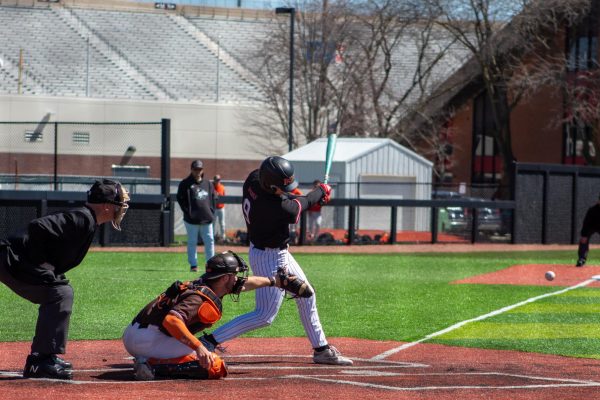Baseball not prejudiced as Rev. Jackson thinks
July 29, 1987
This week—Dan vs. Jesse Jackson. I can sum up the adventure with one simple statement: Rev. Jackson, stay out of baseball.
First, an admission. I like Jesse Jackson. Sort of. I remember seeing him on Lou Grant several years ago, playing a character called the Rev. Jesse Jackson, lashing out against drug abuse about seven years before it became hip to be clean in Hollywood.
“Down with dope, up with hope,” he shouted. His message was strong and simple. It was also pertinent. That means life-or-death important, boys and girls.
But every once in a while, Jackson does something that really honks me off. I’ve always suspected him of being a prima donna—jumping in front of the cameras every eighth day to address a social issue and enhance his self-image as the one and only voice of the people.
Now Jackson has really stuck his nose where it doesn’t belong. He’s messing with baseball, which to me and to millions of others is a sacred institution, one of the few very good things Americans have that no one can touch.
By the by, did you hear the Russians are starting to try baseball? That whirring sound is John Wayne spinning in his grave.
Anyway, it all started last spring when Los Angeles Dodger executive Al Campanis made some statements about the lack of blacks in baseball’s hierarchy. His remarks were ill-worded and construed by alarmists to indicate he wears a white hood in his spare time.
I guess people forgot Campanis was an age-old member of the organization that gave us Jackie Robinson, Roy Campanella and Don Newcombe.
So Campanis was fired, and the issue became hot. Jackson soon stepped in, which came as a surprise only to a handful of Ohioans, and began using pet words like “boycott.” The bandwagon began to roll.
Suddenly, the mindset became one in which baseball is seen as a prejudiced institution, because there are no blacks in managerial or executive positions.
While it may be true that there are no black managers or owners in baseball today, the presumption that there is a racial problem in the Grand Old Game is what you call pure bull.
Think about it. This is 1987. Forty years ago, Robinson broke in with the Dodgers. If ever a pioneer had to endure hardship and humiliation, it was Robinson, who was a man among men. American kids grow up knowing how significant Robinson’s career was.
This past April, before Campanis opened his loosely-interpreted mouth, ceremonies were held in every major league ballpark to honor Robinson. This was done without any coercion by Jackson.
Look around. There are black coaches everywhere, most of them players who have retired fairly recently and are earning their stripes—guys like Willie Stargell in Atlanta, Bobby Bonds in Cleveland and Deacon Jones in San Diego.
Most of baseball’s managers are older men who played back when Hector was a pup—whatever that means—then kicked around in the minors for years, learning the trade. Don’t tell me about the Padres hiring infantile Larry Bowa. The Padres are as stupid as they are inept.
Think back. When Frank Robinson became the first black manager more than 10 years ago, I doubt he was hired because his skin contained a lot of melanin. And when he was fired, it was because his team did not win. Of course, it was the Cleveland Indians.
The bottom line is this: there have been and there will be black managers in baseball. But they will be chosen—as managers always have been—for their ability, not for the color of their skin. There will be more and more black managers as time passes and former players become experienced candidates.
Prejudice in baseball, Rev. Jackson? Read about the garbage Jackie Robinson had to go through forty years ago. That was prejudice. Baseball and Robinson helped break down walls that extended past the centerfield fence.
So Jesse, go back to saving kids from drugs. You’re good at that. Meanwhile, let’s all talk baseball: how ‘bout that Andre?



